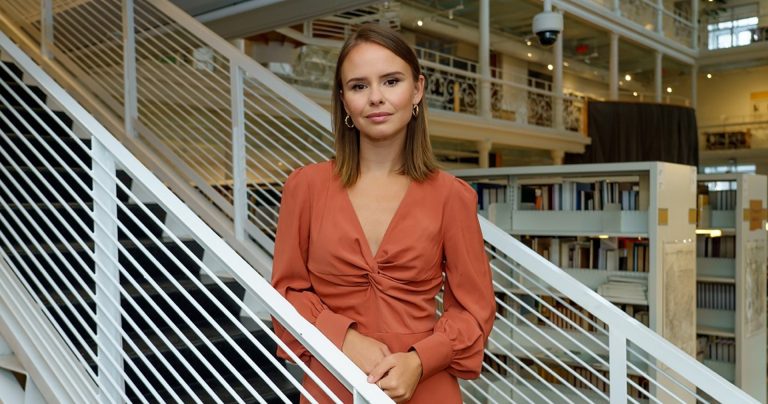Concordia researcher’s new podcast “Pourquoi tant de haine?” sheds light on the origins of online hatred

Léa Clermont-Dion, a postdoctoral researcher at Concordia’s Centre for the Study of Learning and Performance (CSLP) has just launched the podcast “Pourquoi tant de haine?” (“Why So Much Hatred?”), in collaboration with Savoir Média and Concordia.
Clermont-Dion is also co-director of the award-winning documentary Backlash: Misogyny in the Digital Age (Je vous salue salope : la misogynie au temps du numérique).
With the help of several guest experts, including Concordia’s Vivek Venkatesh, the podcast delves into the origins of online hatred and its implications and how social media can serve as an empowerment tool for the younger generations. Venkatesh is UNESCO co-chair on the Prevention of Radicalization and Violent Extremism, professor of inclusive practices in visual arts in the university’s Department of Art Education and co-director of CSLP.
The podcast was made possible through a fellowship funded by Owen Chapman, professor in the Department of Communications Studies, and Venkatesh.
Can you tell us about the origin of this podcast project on hate speech? What motivated you to undertake this project?
Léa Clermont-Dion: After completing “Je vous salue salope” and my thesis on online anti-feminist discourses, an insatiable curiosity drove me to further explore the complexities of online hatred. I am motivated by a desire to understand its roots and to contemplate how social media could serve as a lever for social transformation. This podcast is a personal and analytical quest through these questions.
Can you explain what “hate speech” means today and what forms it can take in our society, for example, common versus less common forms?
LCD: “Hate speech” is legally characterized as any communication that expresses hatred or defamation of an individual or group, based on characteristics such as race, gender, religion, among others. It is distinguished by its intensity and context, with a marked capacity to incite hatred and violence, going beyond simple expressions of aversion or contempt.
Have you noticed an increase in hate speech over the past few years?
LCD: Indeed, the rise of hate speech is undeniable. Statistics Canada reports a 72 per cent increase in reported hate crimes between 2019 and 2021. This alarming trend was further accentuated by an additional 27 per cent increase in 2021, highlighting an increased spread of hatred and marked discrimination against racialized groups.
Could you give us an overview of the more specific themes that will be explored in this podcast?
LCD: We start the podcast by presenting the intrinsic nature of hatred. The following episode decrypts the collective dynamics of hatred. We then examine its origins and deep-seated causes.
Vivek Venkatesh contributes to the fourth episode to discuss the Landscape of Hope project. Finally, we conclude with insights into the perspective of young people, exploring their vision and hope in the transformative potential of social media.
Is there a theme that particularly struck you or was more challenging to address?
LCD: Exploring the roots of hatred was particularly challenging. The contributions of specialists like Dr. Cécile Rousseau and David Morin were crucial in navigating this complex terrain and providing valuable insights.
What impact do you hope to have with this podcast? What developments or changes would you like to see emerge from this project?
LCD: I would like these issues to be addressed more directly with young people by addressing taboo topics. Education is essential for prevention.
Can you envision how this podcast could serve as an educational tool or what applications it could have in the field of education?
LCD: I aspire to have this podcast raise awareness and initiate enriching dialogues about hatred and discrimination. I see an opportunity for this podcast to be integrated into educational programs, serving as a tool to explore and discuss these sensitive topics with the necessary depth and nuance.
Listen to Léa Clermont-Dion’s podcast ‘Pourquoi tant de haine?’
Learn more about Concordia’s Centre for the Study of Learning and Performance.


